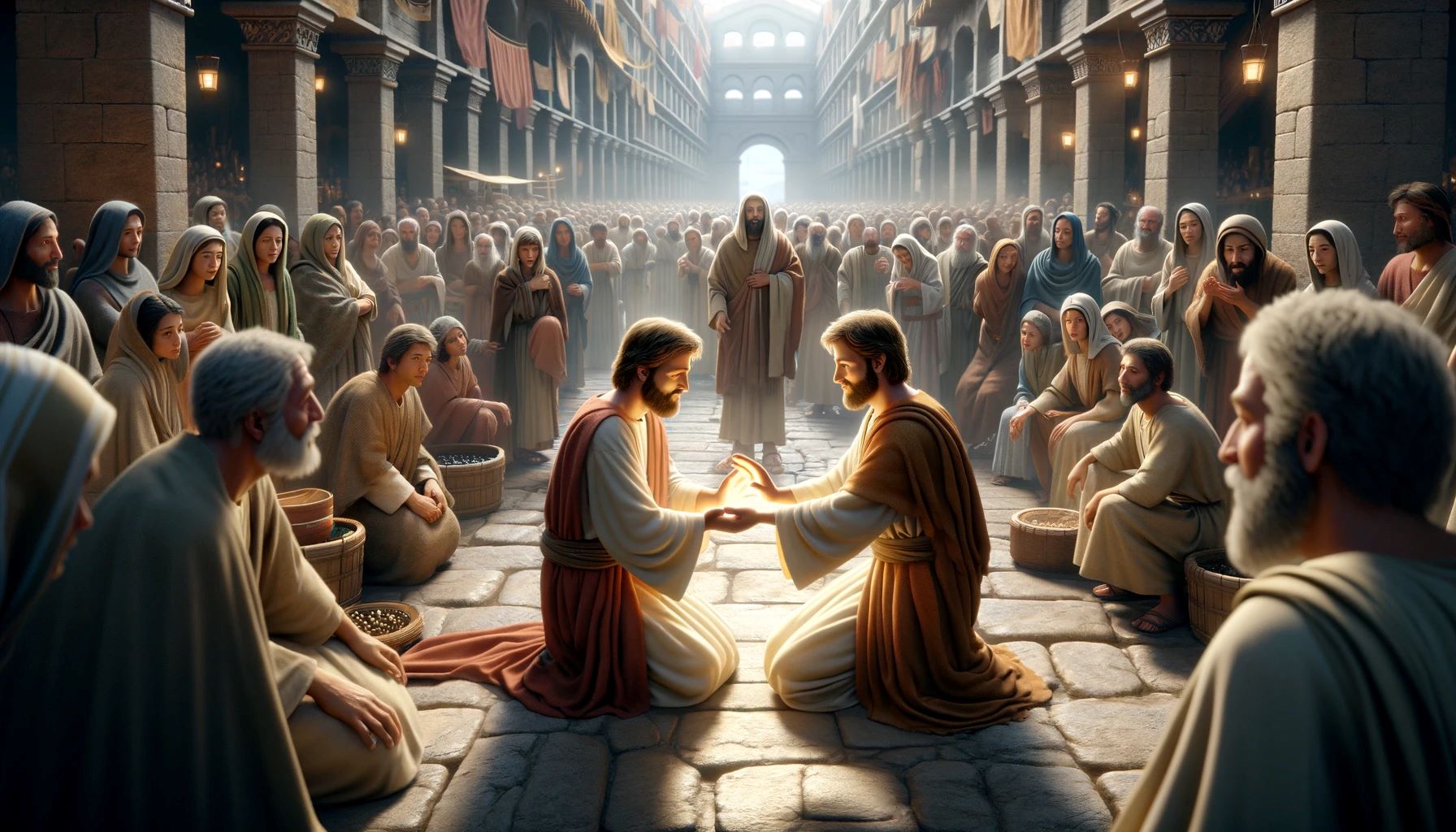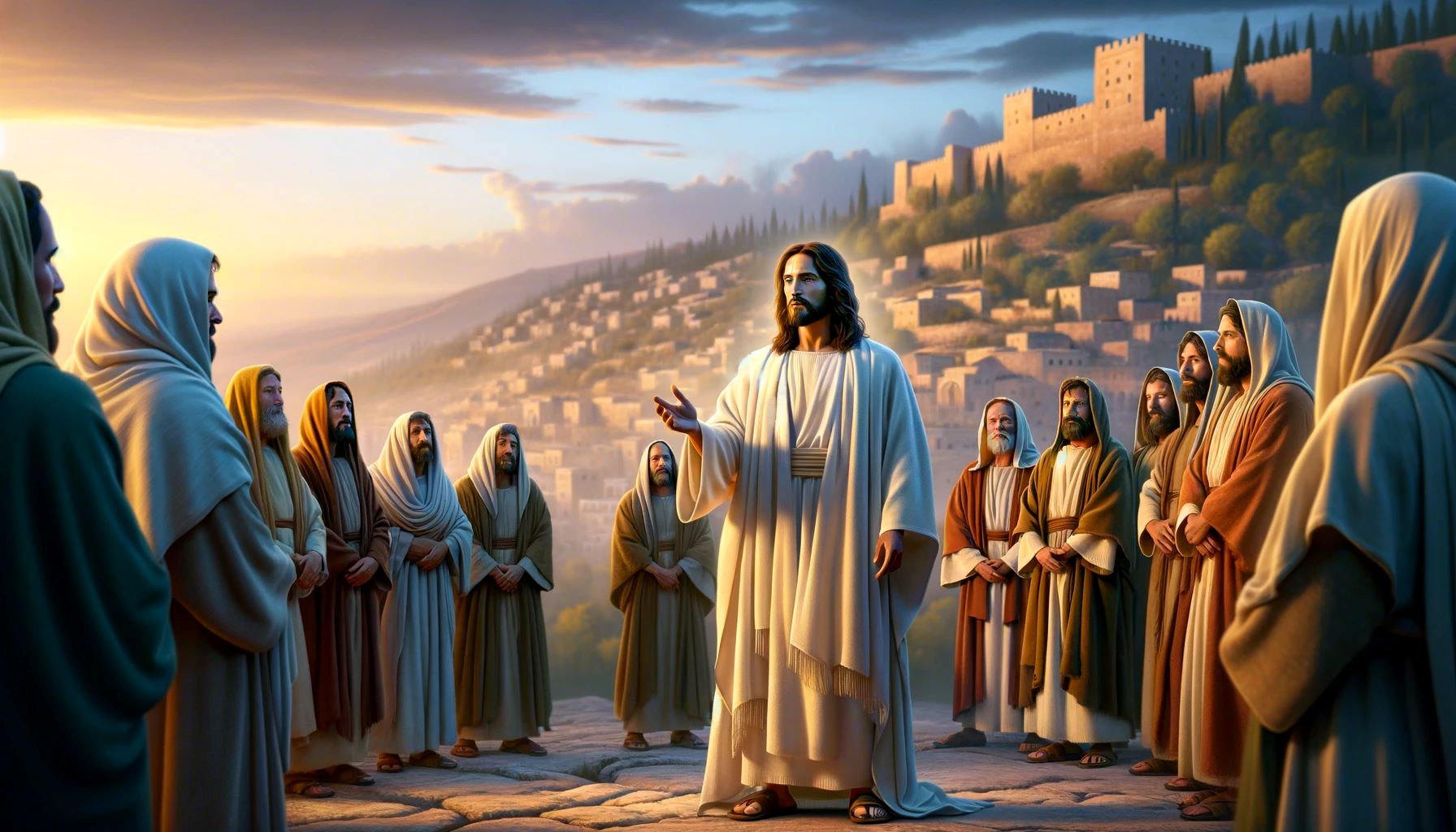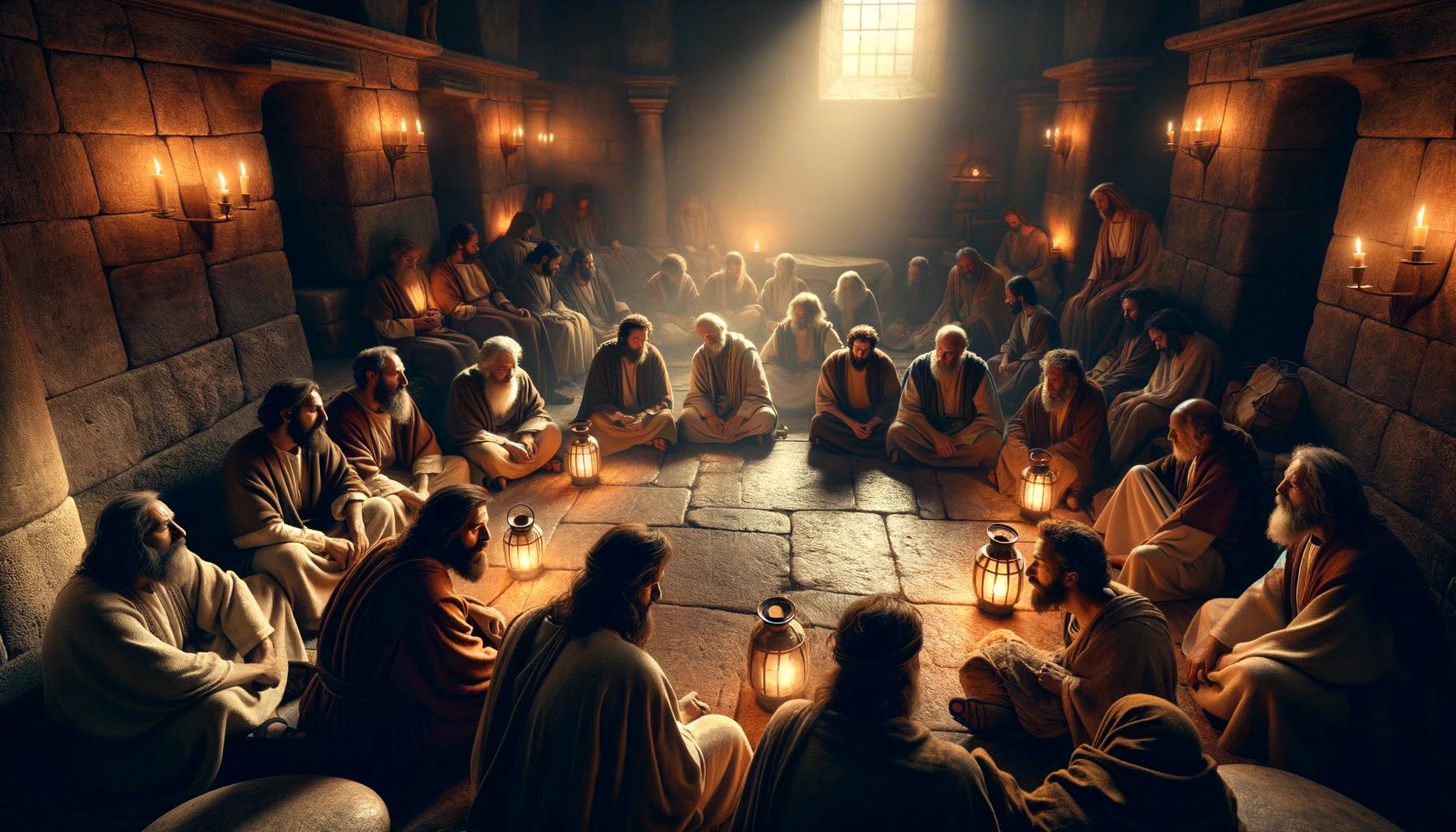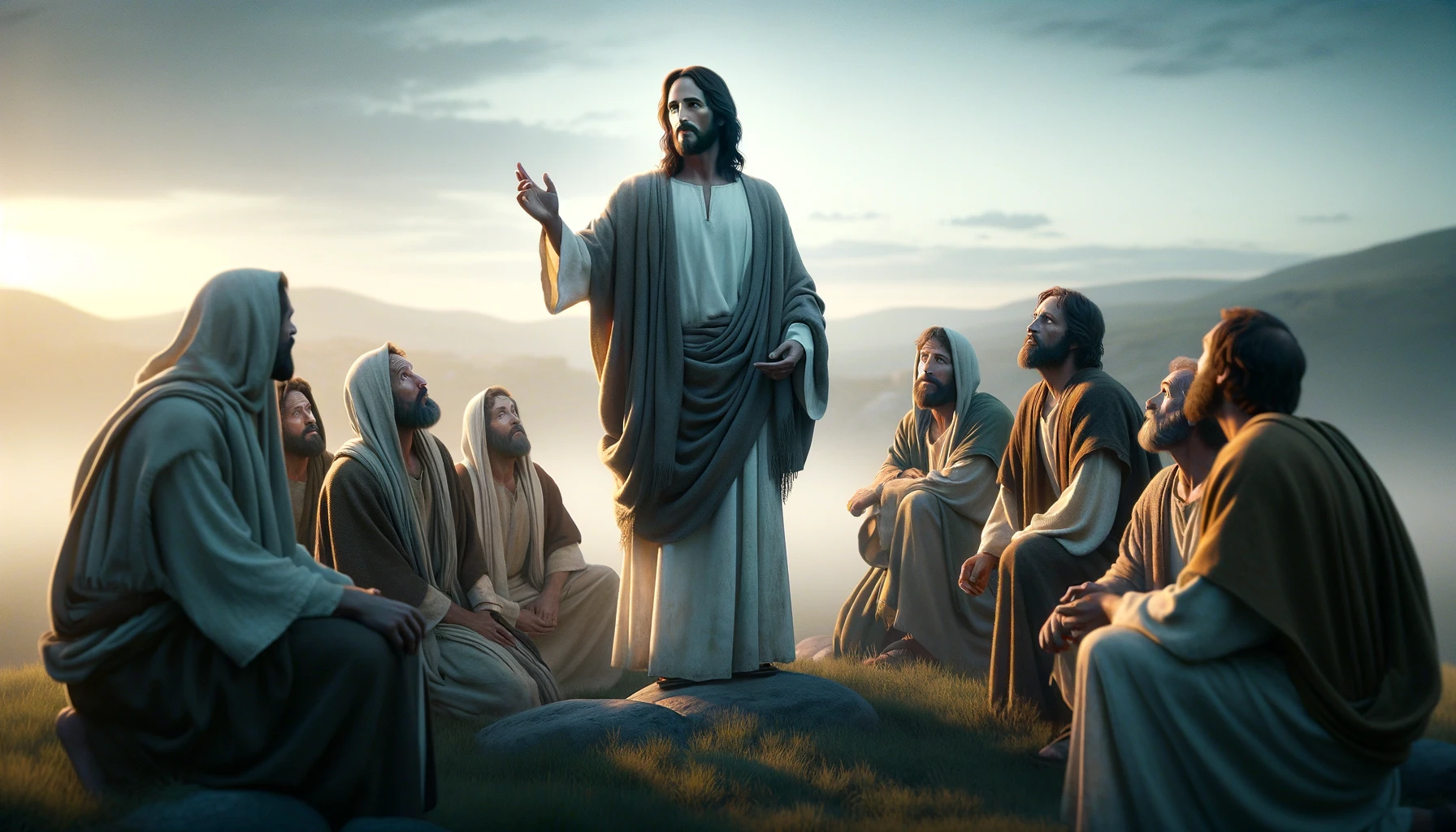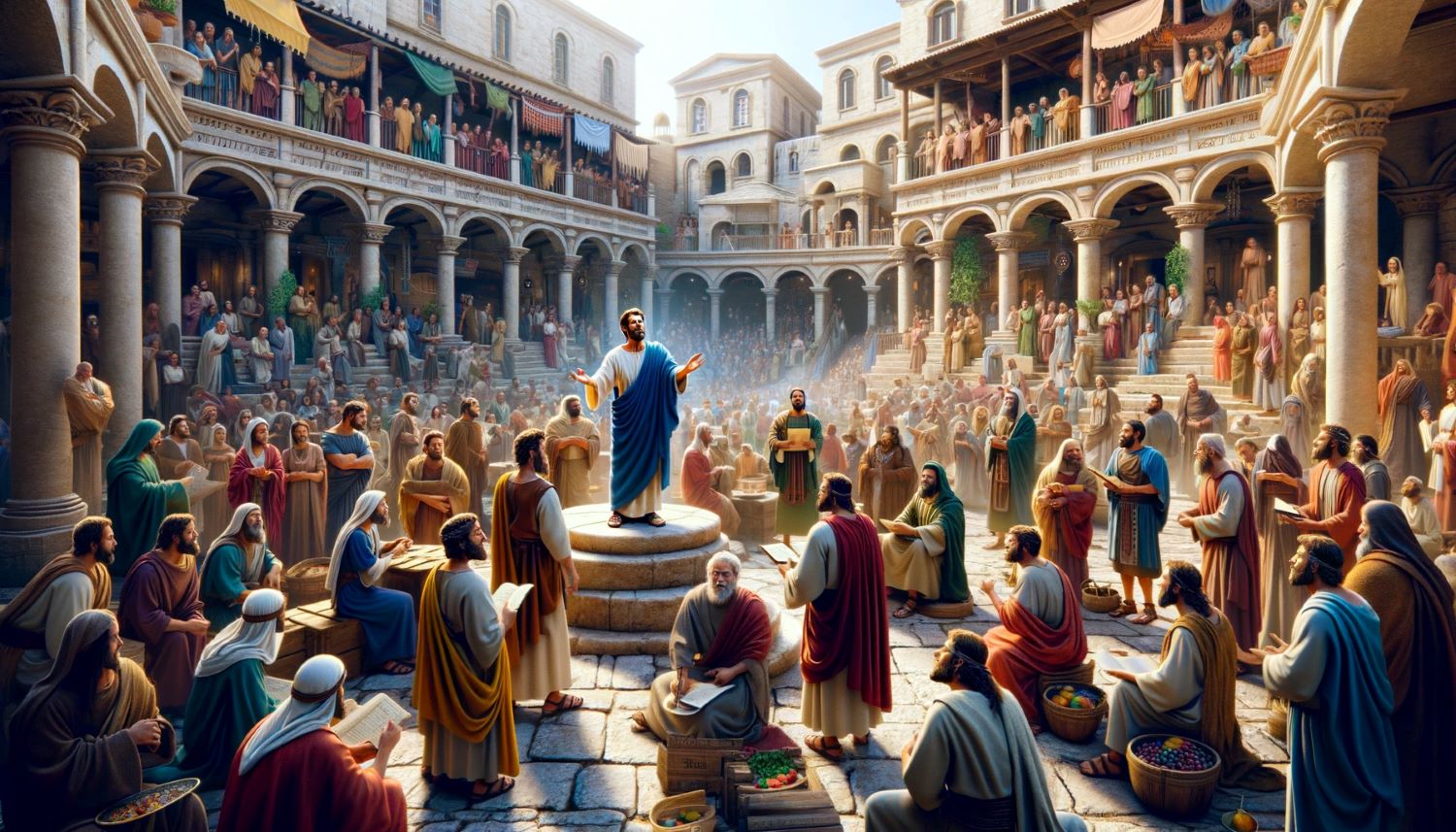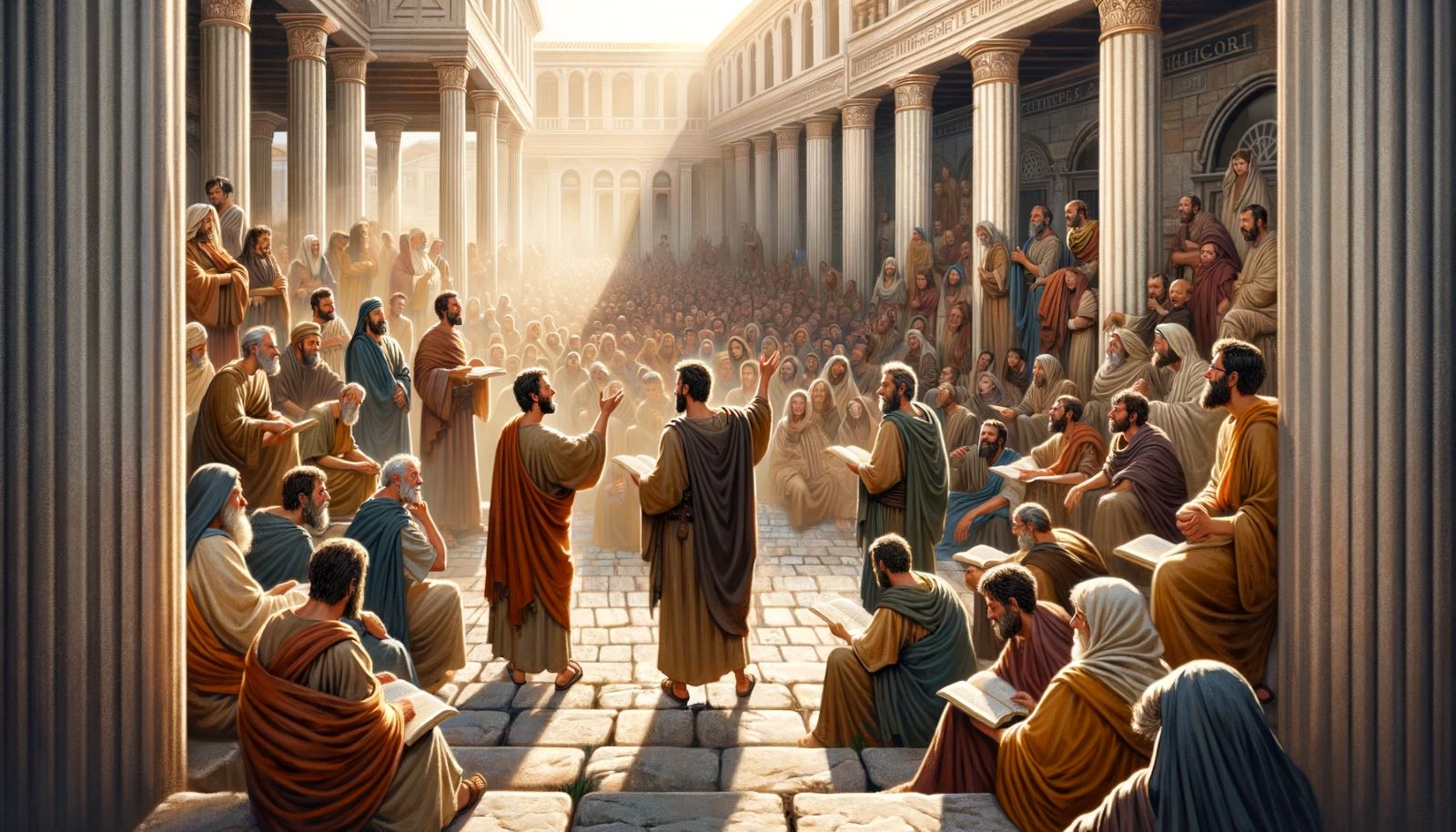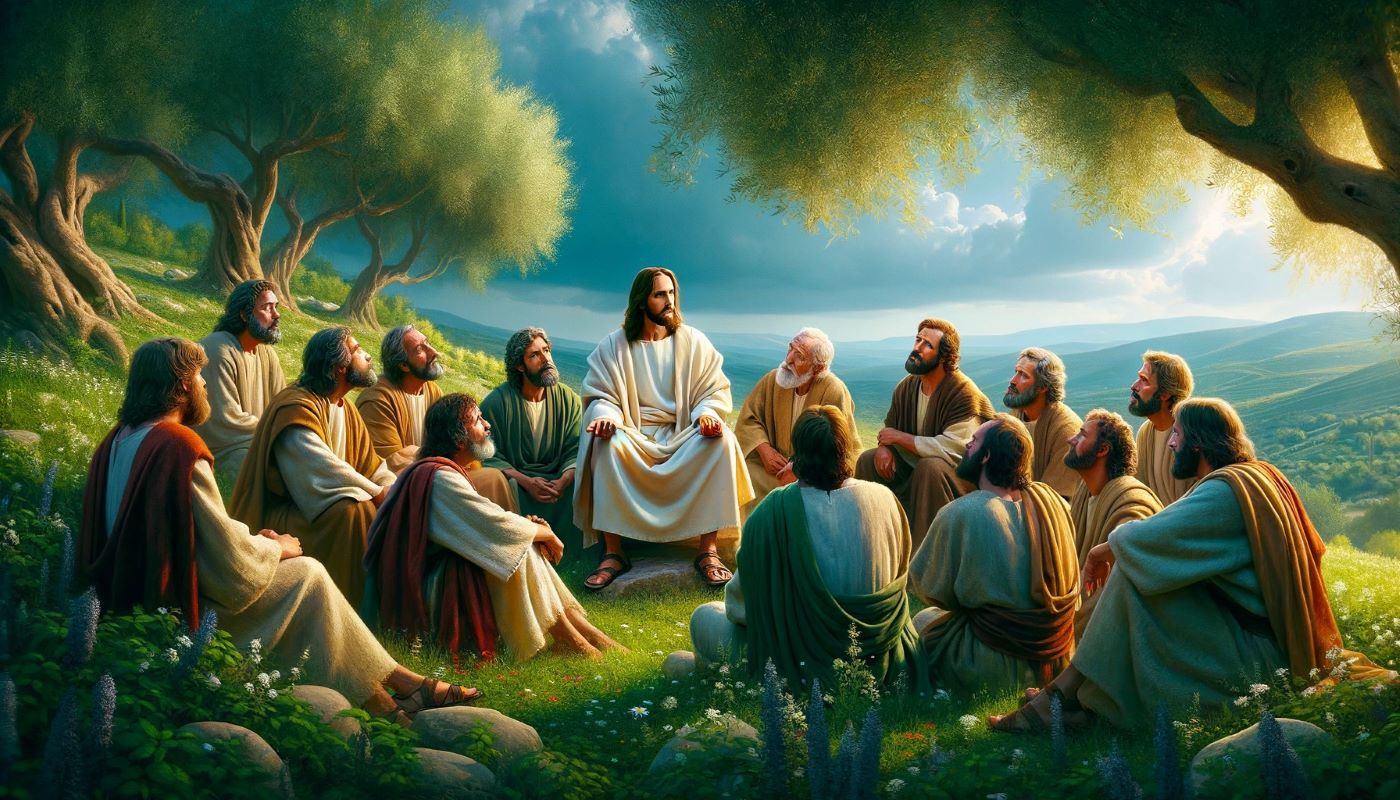Home>Bible Facts>What Command Did Jesus Give The Apostles Immediately Before His Ascension


Bible Facts
What Command Did Jesus Give The Apostles Immediately Before His Ascension
Published: February 23, 2024
Jason DeRose, Managing Editor at Christian.net, uses his expertise in religion and journalism to deepen understanding of faith's societal impacts. His editorial leadership, coupled with a strong academic background, enriches the platform’s diverse content, earning him recognition in both journalism and religious circles.
Discover the Bible facts about the command Jesus gave the apostles before His ascension. Learn about this pivotal moment in Christian history.
(Many of the links in this article redirect to a specific reviewed product. Your purchase of these products through affiliate links helps to generate commission for Christian.net, at no extra cost. Learn more)
Table of Contents
Introduction
The pivotal moments leading up to Jesus Christ's ascension are imbued with profound significance and divine purpose. As He prepared to depart from His disciples and return to the heavenly realm, Jesus imparted a command that would resonate throughout the ages. This command, known as the Great Commission, encapsulates the essence of Christ's earthly ministry and serves as a guiding light for His followers.
The events surrounding Jesus' ascension are a culmination of His redemptive mission on earth. His teachings, miracles, and ultimate sacrifice on the cross have laid the foundation for the establishment of the Christian faith. As He stood before His disciples, His words carried immense weight, signaling a transition in their roles as His chosen messengers.
The command that Jesus delivered to the apostles in the moments preceding His ascension holds profound implications for the spread of the gospel and the perpetuation of His teachings. It represents a divine mandate that transcends time and space, calling upon believers to embrace their calling as ambassadors of Christ to the world.
In the following sections, we will delve into the intricacies of the Great Commission, explore the apostles' response to this momentous directive, and unravel the enduring significance of this command in shaping the course of Christianity. Through this exploration, we will gain a deeper understanding of the profound impact of Jesus' parting words on the trajectory of the early church and the enduring relevance of His command for contemporary believers.
The Great Commission
The Great Commission stands as a defining moment in the culmination of Jesus Christ's earthly ministry. It represents the divine charge given by Jesus to His disciples, empowering them to carry forth His message of salvation to the ends of the earth. The essence of this commission is encapsulated in the words spoken by Jesus as recorded in the Gospel of Matthew 28:18-20, where He instructs His followers to "go and make disciples of all nations, baptizing them in the name of the Father and of the Son and of the Holy Spirit, and teaching them to obey everything I have commanded you."
This profound directive embodies the universal scope of the gospel message, transcending cultural, geographical, and societal boundaries. It signifies the inclusive nature of Christ's redemptive work, extending the invitation of salvation to people from every corner of the world. The command to "make disciples of all nations" underscores the transformative power of the gospel, compelling believers to actively engage in the process of nurturing and guiding individuals toward a deep and abiding faith in Christ.
Furthermore, the act of baptizing individuals in the name of the triune God symbolizes the initiation into the community of faith, signifying a spiritual rebirth and a commitment to walk in the footsteps of Christ. This sacramental rite serves as a tangible expression of the inward transformation experienced by those who embrace the message of salvation.
Equally significant is the charge to teach new disciples to obey all that Jesus commanded. This underscores the importance of nurturing spiritual growth and maturity, guiding believers in the principles of Christ-like living and obedience to His teachings. The Great Commission, therefore, encompasses not only the proclamation of the gospel but also the ongoing discipleship and edification of those who respond to the message.
The enduring relevance of the Great Commission reverberates through the annals of Christian history, serving as a rallying cry for believers to actively participate in the advancement of God's kingdom. It compels individuals and communities of faith to embrace their role as ambassadors of Christ, fervently sharing the message of hope and redemption with a world in need.
In essence, the Great Commission embodies the heartbeat of Christian mission, igniting a passion for evangelism, discipleship, and the transformation of lives through the power of the gospel. It stands as a timeless mandate, inspiring generations of believers to heed the call to go forth and make disciples, baptizing and teaching in the name of the triune God.
The Apostles' Response
The apostles' response to the Great Commission exemplifies their unwavering commitment to fulfilling the mandate entrusted to them by Jesus. In the aftermath of receiving this profound directive, the apostles demonstrated a resolute determination to carry out the mission set before them.
Upon hearing Jesus' command to go and make disciples of all nations, the apostles exhibited a profound sense of purpose and resolve. Their response was marked by a deep sense of conviction and an unwavering dedication to the task at hand. Despite the enormity of the commission and the challenges that lay ahead, the apostles embraced their calling with fervor and zeal.
The apostles' response was characterized by an unyielding faith in the transformative power of the gospel. They recognized the far-reaching implications of Jesus' command and the profound impact it would have on the course of human history. Their unwavering belief in the message they carried fueled their resolve to spread the good news to the ends of the earth.
Furthermore, the apostles' response was marked by a spirit of unity and collaboration. Recognizing the magnitude of the task before them, they banded together, drawing strength from their shared mission and collective sense of purpose. Their solidarity and mutual encouragement fortified their resolve as they embarked on the monumental undertaking of fulfilling the Great Commission.
In the face of adversity and opposition, the apostles remained undeterred, steadfastly advancing the cause of Christ. Their unwavering commitment to the Great Commission, even in the face of persecution and hardship, serves as a testament to their unshakeable faith and dedication to the spread of the gospel.
The apostles' response to the Great Commission serves as a timeless example of wholehearted obedience and unwavering dedication to the cause of Christ. Their resolute commitment to fulfilling Jesus' command laid the groundwork for the expansion of the early church and the enduring impact of the gospel message.
In essence, the apostles' response to the Great Commission embodies a profound demonstration of faith in action, inspiring believers throughout the ages to embrace their calling with fervor and determination. Their unwavering commitment to the mission set before them stands as a testament to the transformative power of the gospel and the enduring impact of obedient discipleship.
The Significance of the Command
The command given by Jesus to His apostles immediately before His ascension holds profound significance in shaping the course of Christian mission and the spread of the gospel. At its core, this directive embodies the universal scope of the gospel message, transcending cultural, geographical, and societal boundaries. It signifies the inclusive nature of Christ's redemptive work, extending the invitation of salvation to people from every corner of the world.
The Great Commission, as articulated by Jesus, encompasses the essential elements of Christian discipleship and mission. The charge to "go and make disciples of all nations" underscores the transformative power of the gospel, compelling believers to actively engage in the process of nurturing and guiding individuals toward a deep and abiding faith in Christ. This mandate transcends the confines of a specific time or place, resonating with believers across generations and cultures, calling them to participate in the ongoing work of making disciples.
Furthermore, the act of baptizing individuals in the name of the Father, the Son, and the Holy Spirit symbolizes the initiation into the community of faith, signifying a spiritual rebirth and a commitment to walk in the footsteps of Christ. This sacramental rite serves as a tangible expression of the inward transformation experienced by those who embrace the message of salvation. It represents a public declaration of faith and a profound spiritual union with the triune God.
Equally significant is the charge to teach new disciples to obey all that Jesus commanded. This underscores the importance of nurturing spiritual growth and maturity, guiding believers in the principles of Christ-like living and obedience to His teachings. The Great Commission, therefore, encompasses not only the proclamation of the gospel but also the ongoing discipleship and edification of those who respond to the message.
The enduring relevance of the Great Commission reverberates through the annals of Christian history, serving as a rallying cry for believers to actively participate in the advancement of God's kingdom. It compels individuals and communities of faith to embrace their role as ambassadors of Christ, fervently sharing the message of hope and redemption with a world in need.
In essence, the significance of the command lies in its transformative impact on the lives of believers and its far-reaching implications for the expansion of the kingdom of God. It serves as a timeless mandate, inspiring generations of believers to heed the call to go forth and make disciples, baptizing and teaching in the name of the triune God.
Conclusion
In conclusion, the command that Jesus gave to His apostles immediately before His ascension, known as the Great Commission, stands as a timeless directive that transcends the boundaries of time and culture. This profound mandate encapsulates the essence of Christian mission and discipleship, calling believers to actively engage in the proclamation of the gospel, the nurturing of new disciples, and the advancement of God's kingdom.
The enduring relevance of the Great Commission reverberates through the annals of Christian history, serving as a rallying cry for believers to embrace their role as ambassadors of Christ. It ignites a passion for evangelism, discipleship, and the transformation of lives through the power of the gospel. The universal scope of the commission underscores the inclusive nature of Christ's redemptive work, extending the invitation of salvation to people from every corner of the world.
Furthermore, the apostles' unwavering response to the Great Commission serves as a timeless example of wholehearted obedience and unwavering dedication to the cause of Christ. Their resolute commitment laid the groundwork for the expansion of the early church and the enduring impact of the gospel message. Their steadfastness in the face of adversity and opposition inspires believers throughout the ages to embrace their calling with fervor and determination.
The significance of the command lies in its transformative impact on the lives of believers and its far-reaching implications for the expansion of the kingdom of God. It embodies the universal scope of the gospel message, compelling believers to actively engage in the process of nurturing and guiding individuals toward a deep and abiding faith in Christ. The Great Commission represents a divine mandate that transcends time and space, calling upon believers to embrace their calling as ambassadors of Christ to the world.
In essence, the Great Commission serves as a guiding light for believers, inspiring them to heed the call to go forth and make disciples, baptizing and teaching in the name of the triune God. It stands as a testament to the transformative power of the gospel and the enduring impact of obedient discipleship, echoing through the corridors of time as an eternal beacon of hope and redemption for all humanity.
